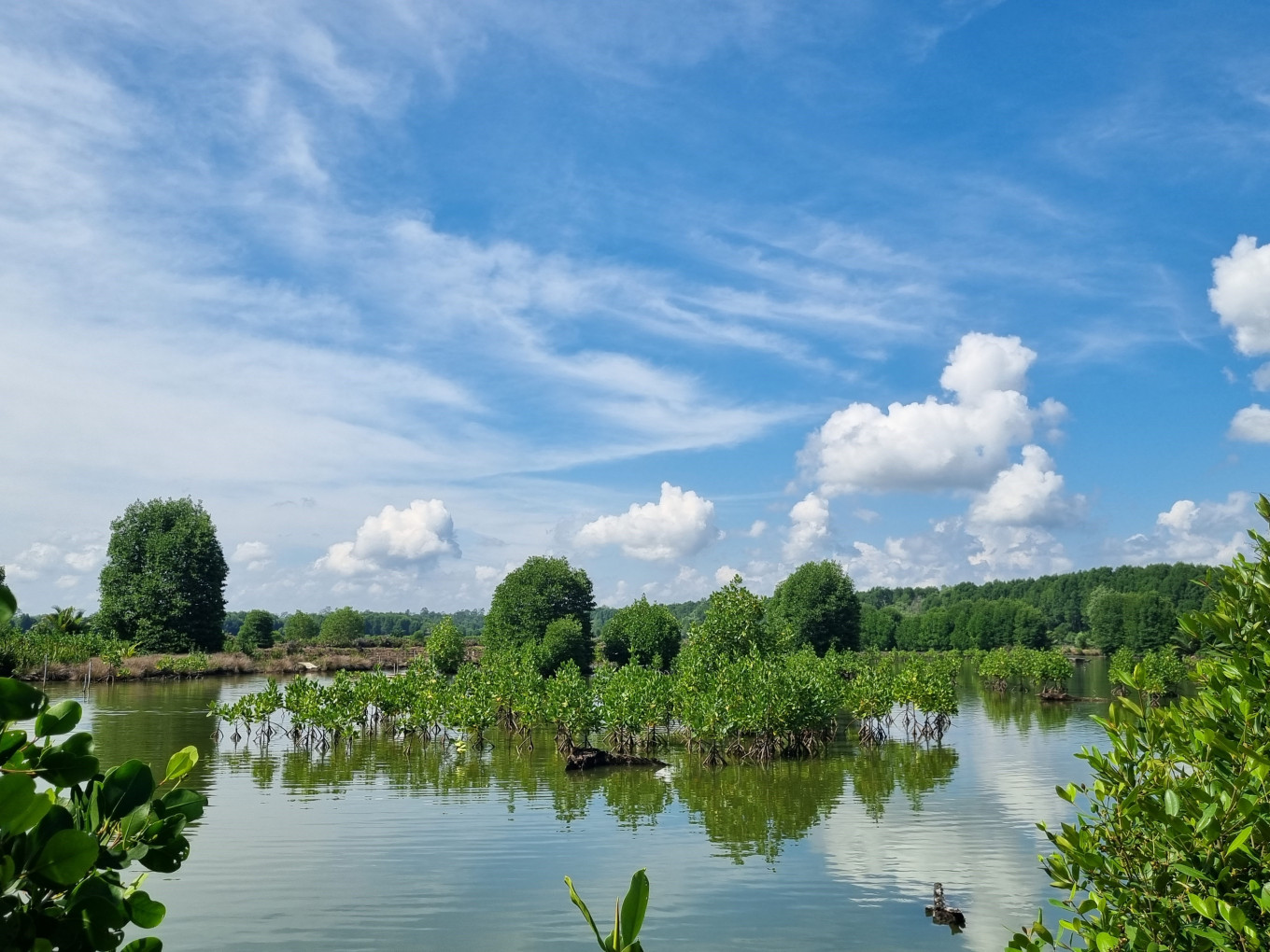Popular Reads
Top Results
Can't find what you're looking for?
View all search resultsPopular Reads
Top Results
Can't find what you're looking for?
View all search resultsSmart Silvofishery: An eco-friendly boost to the economy
Indonesia, renowned for its extensive coastline and diverse marine resources, witnessed the rise of traditional fish and shrimp farming in the 1964-1970 period. Regarded as a lucrative venture, these aquaculture practices became a mainstay, fostering economic growth.
Change text size
Gift Premium Articles
to Anyone
I
ndonesia, renowned for its extensive coastline and diverse marine resources, witnessed the rise of traditional fish and shrimp farming in the 1964-1970 period. Regarded as a lucrative venture, these aquaculture practices became a mainstay, fostering economic growth. However, the conversion of mangrove ecosystems into aquaculture ponds, which was exacerbated by the depletion of fish and shrimp quality, coastal erosion and seawater intrusion, has become a concerning trend.
According to the 2021 National Mangrove Map, Indonesia possesses 3.36 million hectares of mangrove forests. Unfortunately, mangrove areas are being repurposed for aquaculture and settlements. The Delta Mahakam in East Kalimantan is one such coastal areas where traditional aquaculture, reliant on tidal fluctuations, faces challenges such as declining yields, water quality deterioration and emerging pond pests because of mangrove ecosystem degradation.
Addressing this issue, Prof. Dr. Esti H. Hardi, a Professor at the Faculty of Fisheries and Marine Sciences at Mulawarman University, sought to optimize community-based environmental restoration. "Through the Kedaireka program, we collaborated with the Peat and Mangrove Restoration Agency (BRGM) to develop smart Silvofishery in the Delta Mahakam area," stated Prof. Esti.
Smart silvofishery is an innovative aquaculture management method that prioritizes mangrove ecosystem restoration, emphasizing both high-quality pond productivity and economic value. This approach involves polyculture, cultivating multiple species like shrimp, fish, crabs and seaweed simultaneously in one pond over a set period. Mangroves are strategically planted in specific areas within the ponds. Research findings indicate that smart Silvofishery yields harbor higher amino acid, fatty acid and protein content compared to conventional aquaculture.
The Salo Sumbala group, located in Muara Badak Ilir Village, Samarinda, East Kalimantan, is among the communities successfully implementing smart Silvofishery. This group received training on mangrove planting in ponds and the production of organic feeds for fish and shrimp cultivation. Initially met with skepticism, the Salo Sumbala group has now become a community educator, attracting others to learn about smart Silvofishery techniques.
Ramlan, the group's chairman, shared his experience with a Silvofishery system in his pond. "I noticed that the pond embankment started eroding because of tidal fluctuations. I attempted to plant mangroves along the embankment, and it prevented erosion. After receiving smart Silvofishery training from BRGM, I replanted mangroves in the pond. Over time, I was surprised to see increased harvests in terms of quantity and fish quality. The weight increased, and the fish were much fresher. After the harvest, I shared my results with other farmers who initially doubted it," said Ramlan.
Despite initial doubts, Ramlan persisted in encouraging others to witness the positive results. One by one, local farmers were taught to implement the smart Silvofishery system, leading to successful harvests.
"Now, the community can independently manage their pond areas. The results are satisfying, with increased income for residents in Muara Badak Ilir Village. The harvested fish are processed by locals into products like boneless fish and traditional East Kalimantan crackers, which will be marketed to eateries in Balikpapan. Additionally, the youth actively participate in mangrove rehabilitation through the smart Silvofishery system, fostering a growing sense of community awareness and ownership," concluded Ramlan.
Feri, a local youth in Muara Badak Ilir Village, added, "In the past, the youth here had to seek work outside the region. Over the years, pond yields continued to decline. Because of this, the youth formed the Fishermen's Children Association to help coastal communities improve their aquaculture outcomes through mangrove rehabilitation using smart Silvofishery techniques. Thanks to Allah, the community now recognizes the benefits of mangroves in ponds, leading to increased harvests."










